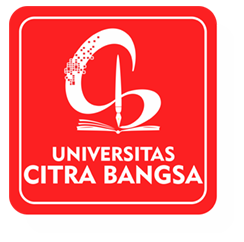PENGARUH MODEL PEMBELAJARAN WORD SQUARE TERHADAP HASIL BELAJAR ILMU PENGETAHUAN ALAM (IPA) SISWA SDI PERUMNAS 2 KUPANG
Keywords:
Hasil Belajar, Word Square, Conventional, Konvensional Word SquareAbstract
ABSTRAK: Penelitian ini dilatar belakangi hasil pengamatan peneliti bahwa proses pembelajaran yang
diterapkanguru di SDI Perumnas 2 Kupang memiliki kecenderungan pada model konvensional sehingga
berakibat pada hasil belajar siswa, nilai ulangan akhir semester 1 sebagian besar siswa memperoleh nilai di
bawah KKM. Penelitian ini bertujuan untuk meningkatkan hasil belajar IPA dengan menggunakan model
pembelajaran word square. Metode penelitian yang digunakan adalah metode quasi eksperimen dengan
menggunakan rancangan eksperimen non equivalent control group design. Yang memperhitungkan skor post
test.Hasil analisis data menunjukan, nilai rata-rata hasil belajar IPA siswa kelas IV SDI Perumnas 2 Kupang
yang diajarkan menggunakan model pembelajaran word square sebesar 81,36 lebih tinggi dari nilai rata-rata
hasil belajar IPA kelas IV yang diberi perlakuan menggunakan model pembelajaran konvensional 60,9. Hasil ini
diperkuat lagi dari pengolahan data menggunakan uji hipotesis dengan uji t-test yang dilakukan pada nilai post
test kedua kelas, yaitu kelas eksperimen dan kelas kontrol, dengan menggunakan bantuan SPSS 16,00 yang
menghasilkan independent samples Test diperoleh nilai sig. (2-tailed) sebesar 0.000 maka nilai signifikansi<
0,05 artinya tolak H0 sehingga dapat disimpulkan bahwa ada pengaruh yang signifikan model pembelajaran
word square terhadap hasil belajar IPA kelas IV SDI Perumnas 2 Kupang.
ABSTRACK:This research is motivated by the results of researchers’ observation that the learning process
implemented by teacher at SDI Perumnas 2 Kupang has tendency in conventional models so it has an impact on
students’ result learning, final exam scores for the first semester of most students get a score below the
minimum completness criteria.The purpose of this research to improve the result of Mathematical & Natural
Sciences Learning by using Word Square learning model. The research method used is quasi experiment
using a non equivalent control group design of experimental design that takes into account the post test
scores.The result of the data analysis showed that the average value of the result of Mathematical and Natural
Sciences learning in IVth grade of SDI Perumnas 2 Kupang who taught using the word square learning model
was 81,36 higher than the avarage value of IV th grade Mathematical and Natural Sciences learning in IV th
grade which were treated using a conventional learning model was 60,9.These results are further strenghtened
from data processing using a hypothesis test with t-test conducted on the value of the post test of the both
classes,namely the experimental class, by using the help of SPSS 16,00 which result in an independent samples
test obtained sig.value,(2-tailed) of 0.000 ,then a significant value < 0,05 means rejeced t H0 ,so that it can be
concluded that there is a significant effect of the word square learning model on the result of Mathematical
and Natural Sciences learning in IVth grade of SDI Perumnas 2 Kupang
Downloads
Published
Issue
Section
License
Every works in SPASI is licensed under a Creative Commons Attribution-ShareAlike 4.0 International License.
Authors who publish with this journal agree to the following terms:
- Authors retain copyright and grant the journal right of first publication with the work simultaneously licensed under a Creative Commons Attribution License that allows others to share the work with an acknowledgment of the work's authorship and initial publication in this journal.
- Authors are able to enter into separate, additional contractual arrangements for the non-exclusive distribution of the journal's published version of the work (e.g., post it to an institutional repository or publish it in a book), with an acknowledgment of its initial publication in this journal.
- Authors are permitted and encouraged to post their work online (e.g., in institutional repositories or on their website) prior to and during the submission process, as it can lead to productive exchanges, as well as earlier and greater citation of published work (See The Effect of Open Access).




